TU Delft invests 10 million euro in bionanoscience
The TU Delft launches a new Bionanoscience Department, which will be part of the Kavli Institute for Nanoscience.
The new department will work together with the existing departments of Nanoscience and Biotechnology, and will count 15 top scientists in the coming years. A strategic collaboration with the European Molecular Biology Lab EMBL will also be developed.
Nano-Tera.CH gets a boost
The EPF Council has decided to allocate 40 million francs to the Nano-Tera.CH initiative (5 million in 2008, 8 million in 2009 and 13.5 million in 2010 and 2011).
The nano-tera program is centered on the application of micro/nano-technologies to embedded systems design, with the goal of improving human conditions through the monitoring of the human body and the environment. The total funding for this program, on the order of 60 MCHF, will support multidisciplinary projects to create complex systems for health, security and environment.
This decision is excellent news, not only for researchers in this domain, but also for industrial partners, and it will be an opportunity to showcase Swiss dynamism in this area. The program, coordinated by EPFL professor Giovanni de Micheli, will be officially launched January 28 in Bern.
The MONA Nanophotonics Technology Roadmap now available
During 2 years (2005-2007), the MONA ("Merging Optics and Nanotechnologies") consortium has been working through workshops, symposia and expert interviews at establishing a roadmap for photonics and nanotechnologies in Europe.
Nanosafe2 releases its first dissemination report
This first report is about conventional protective devices such as fibrous filter media, respirator cartridges, protective clothing and gloves and their efficiency against nanoaerosols.
Nano2Life - The European Landmark in Nanobiotechnology
Nano2Life (N2L), the first European Network of Excellence in nanobiotechnology, will showcase its achievements to EC representatives and the scientific community in Brussels on February 26, 2008.
EU nanotechnology R&D in the field of health and environmental impact of nanoparticles
Being the first of its kind, this compilation has information of 106 projects, 14 of them are from the FPs which give around 32 million € in grants. The others 92 projects are from the EU Members States which spend around 47 million € in grants. This makes a total of some 79 million €.
Dutch trade union wants nanodebate
(In Dutch)
Manager Michiel Hartveld of the Dutch trade union FNV demanded openness on the presence of nanotechnology on the workplace from the side of industrial companies.
Transnational call for collaborative proposals in nanoscience
NanoSci-E+ is a body created specifically for the implementation of a transnational call for collaborative proposals in nanoscience wherein research agencies from 13 countries of the European Research Area (ERA) participate.
Research Project on Graphene Nanoelectronic Devices kicks off in 2008
Will graphene really take the semiconductor industry towards the "Beyond CMOS" era? Some answers to this key question are sought through experiment and simulation in a European research project on Graphene-based Nanoelectronic Devices called "GRAND".

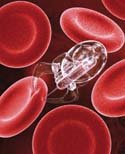
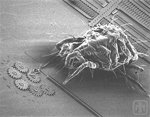
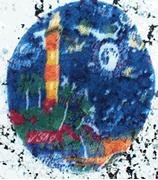

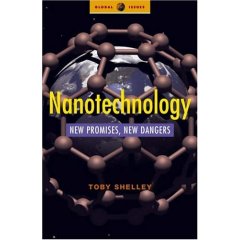
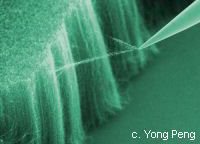
No comments:
Post a Comment